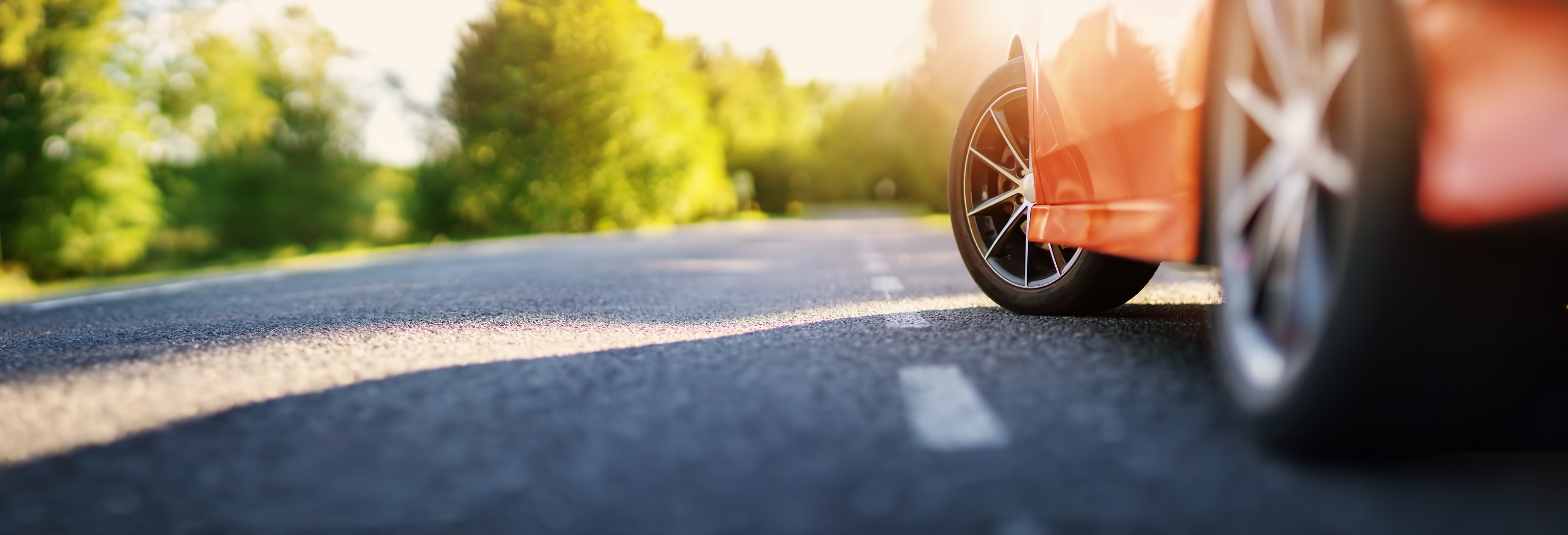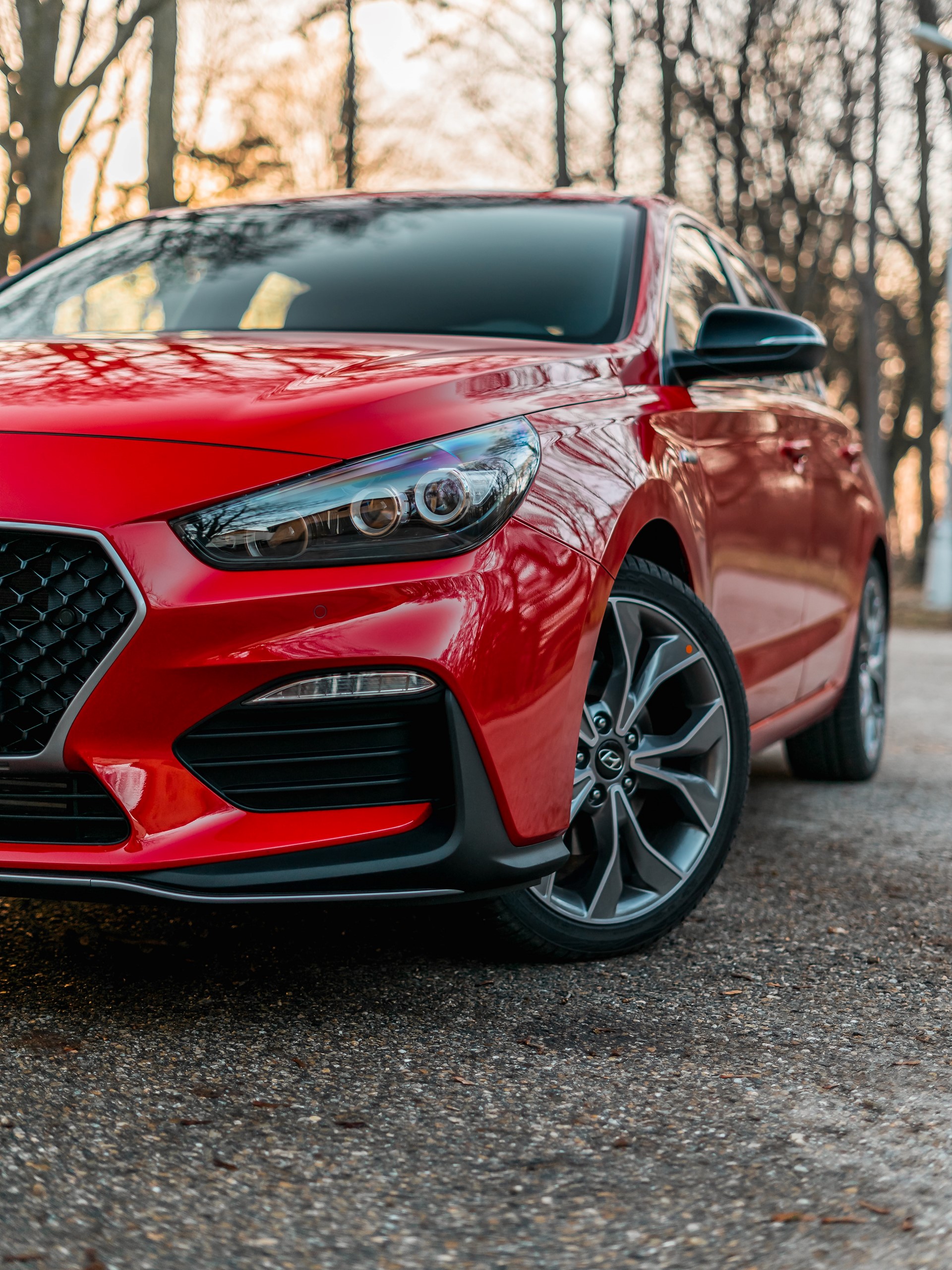Safe summer driving guide
Written by
Monday 12th August 2024

We all know that driving during the winter months can be hazardous, but that doesn’t mean things are plain sailing in summer.
So what potential risks should you look out for when driving in the warmer weather?
1. Drive prepared
There are some accessories you can purchase to make driving in the summer much more comfortable. For example, you may want to invest in a windscreen shade to keep your car cooler while you’re enjoying your day trip.
Wearing sunglasses during the day can help improve visibility and avoid eye strain, too. We do have a small word of warning when it comes to accessories, though. Rule 97 of the Highway Code states you must ensure that “clothing and footwear do not prevent you using the controls in the correct manner” so keep this in mind before donning flip flops or an oversized sun hat to drive!
2. Pull over if you need to
This sounds obvious but plan some extra time into your journey for short breaks. Hot weather can cause lethargy, and it’s important to stay hydrated. While it’s tempting to drink water while driving, it may not be safe to do so and it’s not worth the risk. Pull over and enjoy a proper rest instead.
You may find it more beneficial to take several ten- or twenty-minute stops rather than one long one if you’re heading off on a road trip. This will help you to plan in breaks every few hours, keeping you well-rested for the remainder of your trip.
3. Fill up your engine coolant
Just like us, our cars can get dehydrated. Check the coolant reservoir regularly to make sure your engine has enough coolant and top up if necessary. This should help avoid overheating.
You should also keep an eye on your car’s temperature gauge and, if your car’s showing signs of overheating, pull over as soon as possible when it’s safe to do so.
4. Watch out for hay fever
Allergies can make driving more difficult in the summer months. Ensure your aircon isn’t pulling in fresh pollen by choosing the option that circulates internal air instead and, if the pollen count’s high, keep your car windows shut.
It’s also worth noting that some hay fever medication can cause drowsiness, so catch a lift if you need to take them.
5. Be aware of cyclists
The nice weather means car drivers are more likely to swap them for their motorbikes or bicycles. Make sure you’re double checking for bikes when out and about, and always follow the Highway Code if you want to overtake.
6. Keep things tidy
Cars can heat up quickly when they’re in direct sunlight. Tidy away things like plastic bottles or food and drink and don’t leave hand sanitiser in your car on a hot day.
You should also make sure the exterior of your car is clean, too. Check your windscreen wipers are working effectively, your screen wash is topped up and your windscreen is free of debris before setting off on your summer holidays.
7. Top up your tyres
Tyres are a key element of road safety in winter as good tread to grip in icy conditions is essential. But did you know in summer they can be just as crucial to get right? Under inflated tyres are at greater risk of blowing when the road surface is warm.
Before setting off on your summer day trips, make sure you check your tyre pressure. The recommended air pressure is typically between 30 and 35 PSI, though the optimal tyre pressure for your car may be different. Kwik Fit have a handy tool to help you find the recommended tyre pressure for your vehicle.
8. Set off in plenty of time
The nicer weather and school holidays encourages more of us to get out and about. But the more cars on the road, the greater the risk, so make sure you’re taking extra precautions and leaving plenty of time for your journeys. Impatience can lead to all sorts of dangerous driving such as overtaking, speeding, road rage – be vigilant when driving during busy periods.
9. Tow carefully
Taking your caravan with you? Make sure you’ve planned ahead. You’ll be able to tow up to 3,500kg without a special licence but it’s also worth doing your homework on the maximum weight your car can tow before setting off on your travels. Caravans and trailers need their tyres checked, too, so follow all the same checks as you would your main car.
The RAC website gives further advice on towing a caravan, which is particularly useful in the summer months when families are more likely to be loading up their vehicles for a road trip.
10. Pack an emergency kit
Prepare for the worst by packing an emergency kit. This should include all the usual items from a first aid kit, a warning triangle, a portable battery pack to charge your phone, jump cables and insurance documents. But it’s also worth planning some summer-specific emergency kit, such as bottled water and sun cream.
Is it time for a new car?
If you’re noticing problems stacking up and your car not running like it used to, it might be time to look for a new vehicle.
With Novuna Personal Finance, you can apply for up to £35,000 and spread the cost by making fixed-rate monthly instalments. Check out our car loans page for more information.
Written by
Hannah Denton is a Strategic Sales Manager at Novuna Vehicle Solutions. In a previous role, she was the overall winner of Autocar's Great Women: Rising Stars 2021 award.


